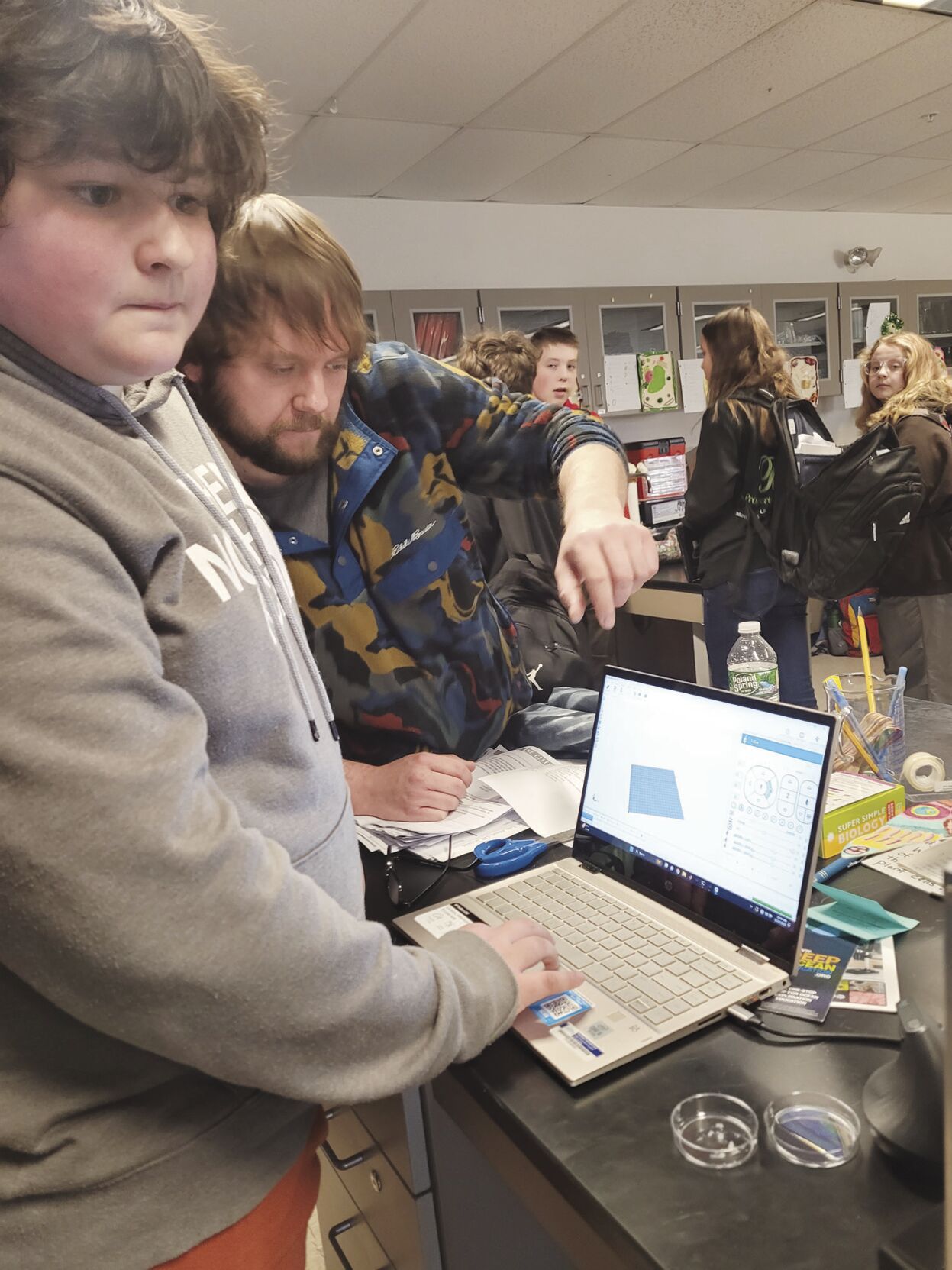MOULTONBOROUGH —Students in Karen McAlpine’s seventh grade Life Science classes at Moultonborough Academy are currently exploring the unique attributes of planaria — a type of flatworm — and sea slugs, both of which can regrow lost body parts. These organisms are helping students to understand basic principles related to regenerative medicine, cutting-edge science you aren’t likely to find in the curriculum at many other middle schools.
A rapidly growing and evolving field, regenerative medicine is focused on restoring, replacing or recreating living cells, tissues and organs that have been damaged due to disease or injury. Discoveries being made in this area of research are already revolutionizing how a range of complex medical conditions are being diagnosed, treated and prevented.
Using microscopes, McAlpine’s students are studying the behavior, habits and regenerative capabilities of planaria and sea slugs through a series of hands-on lab experiments. They are then documenting their findings through written reports, journals and photographs.
McAlpine’s unique curriculum is modeled on subject matter she learned at the University of New Hampshire Tech for Teachers Institute, a two-week professional development program for middle and high school instructors focused on building knowledge in both emerging technologies and project-based learning. This past summer’s program was focused on regenerative medicine and biofabrication.
McAlpine’s new curriculum aligns with national and state science standards and a new workforce development initiative called NH CREATES the Future: the NH Collaborative for Regenerative Medicine Education and Training for Engineers and Scientists of the Future. The initiative is funded by a $1.2 million grant awarded to UNH Tech Camp by the National Institutes of Health through its Science Education Partnership Award program.


















(0) comments
Welcome to the discussion.
Log In
Keep it Clean. Please avoid obscene, vulgar, lewd, racist or sexually-oriented language.
PLEASE TURN OFF YOUR CAPS LOCK.
Don't Threaten. Threats of harming another person will not be tolerated.
Be Truthful. Don't knowingly lie about anyone or anything.
Be Nice. No racism, sexism or any sort of -ism that is degrading to another person.
Be Proactive. Use the 'Report' link on each comment to let us know of abusive posts.
Share with Us. We'd love to hear eyewitness accounts, the history behind an article.